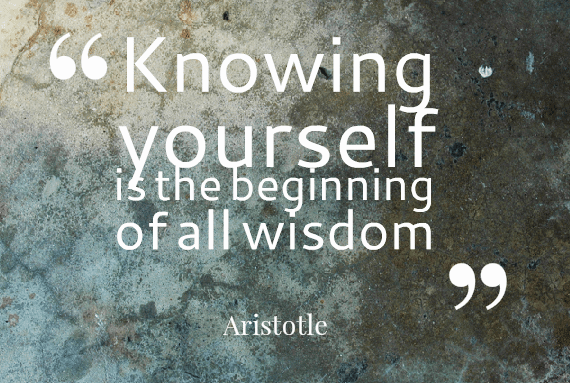Self-knowledge is strongly related to success at work and life. Several studies have concluded that the best predictor of high performance appraisal is seeing yourself as others see you, conversely overrating ones achievement is negatively correlated with high performance appraisal.
Your career can get turbo charged, if you really knew what you are good, average and bad at, what are the areas where you are yet to be tested and what are the things/ actions that you overdo. Known weaknesses won?t get you into as much trouble as your blind spot would, for you can loop around and compensate for your known weakness. In case of a blind spot, you are completely unprepared and at your wits to tackle the blizzard as and when it hits you in the face.
You May Also like To Read:?Practicing Mindfulness Can Boost Your Career
Blind spots can land your career into trouble, because you don?t know or you may be unwilling to admit that you are not good at it. You will venture into areas; that should be make you cautious and humble instead of being confident and jetting into it, disaster is on the heels in these cases. An important life and career goal in life is to minimize blind spots, so here are some tips to help you transverse the journey.
Be open to and solicit feedback
Your colleagues may be reluctant to give you feedback, especially when it is negative or corrective in nature. As the old saying goes, ?To get it, you must ask for it?, seeking negative and distasteful feedback increases both the accuracy of our understanding and people?s evaluation of our overall effectiveness.? People tend to increase their estimation of you, if you seek out and accept more feedback.
Listen in private only
A private discussion and feedback sessions will unearth more data than the one given in public. Don?t be blindfolded by your public feedback, for most of us, it is an excessively positive feedback. ?When the feedback giver knows that the results will be public, scores go up and the accuracy comes down.
Have diversity in sources of feedback
Getting feedback from one cohort only puts you at risk of soliciting one point of view. It is best to take feedback from your colleagues, managers, customers, friends and family. Each one of them would know little deeper about one of your traits, because you will be using different strengths in your interaction with each one of them. For instance the customers would know more about your responsiveness and problem solving skills than your close friends. Direct reports may be best at giving you feedback on day-to-day behavior at work.
Avoid being defensive
Defensive people get less feedback, because people suspect that you cannot take it in the right spirit. One of the signs of being defensive is to blame someone else for your behavior or when you justify your behavior as a trigger reaction to an event or action.? To break this cycle, you need to be an active listener and suspend judgment, whilst it may sound unfair; the key is to initially accept all feedback as accurate even though when you know it isn?t. Later on using your judgment and common patterns if any, you can work on the selected few.
Jappreet Sethi










